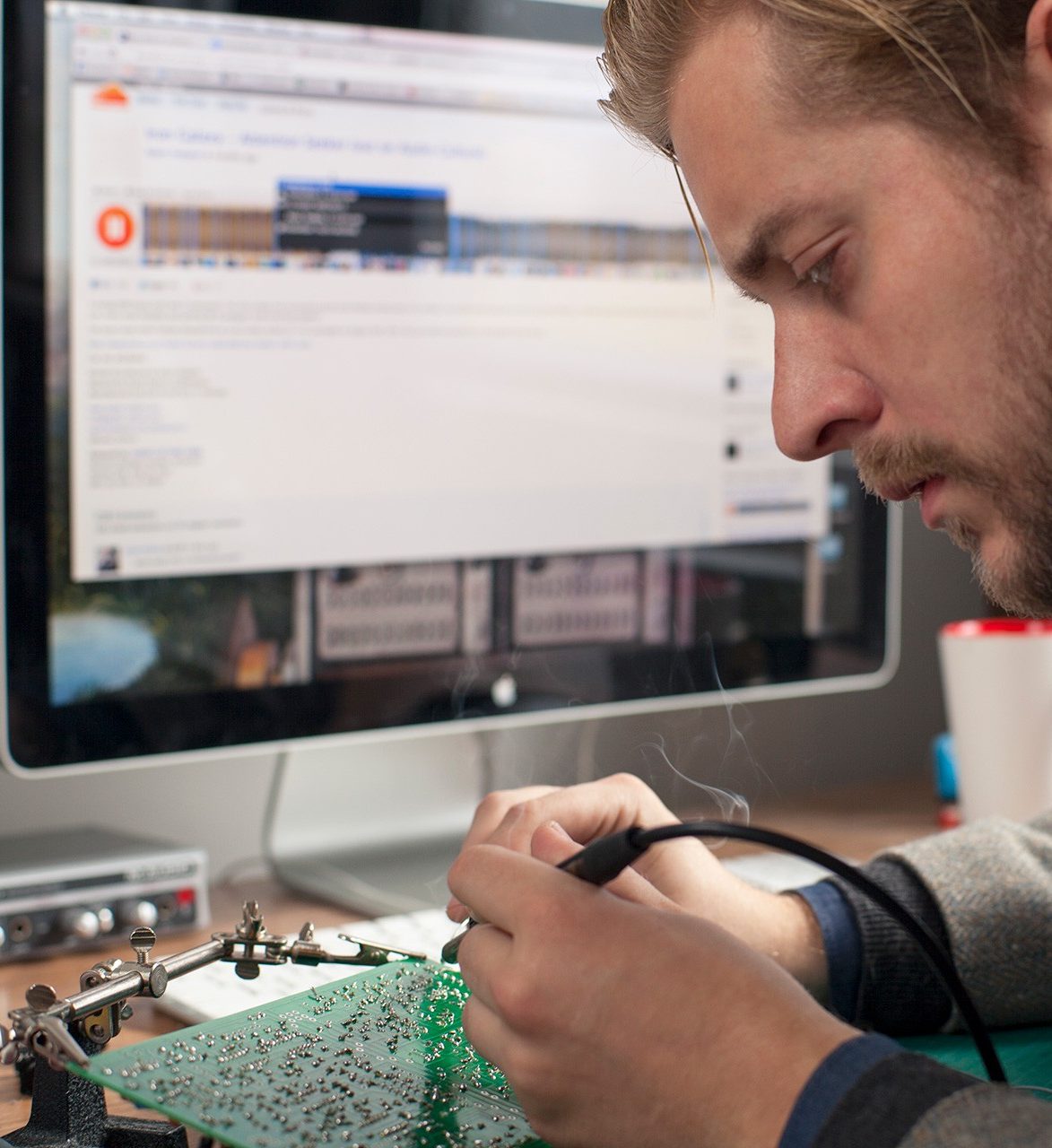
Careers with an electrical engineering degree
Studying Electrical Engineering means designing the systems that power modern life, from renewable energy systems and electric vehicles to biomedical devices and communication networks.
What can I do with my degree? You’ll be ready to innovate in fields like renewable energy, electric transport, telecommunications and medical technology.
Skills you'll develop
Your degree builds more than academic knowledge, it shapes the way you think, communicate and collaborate. Throughout your studies, you'll develop key skills for your career, such as:
Functional knowledge:
Design power electronics for renewable energy and electric transportation
Communication:
Translate complex technical ideas into clear reports and professional presentations
Management and organization:
Use tools or project boards to organize engineering tasks and meet deliverables
Teamwork:
Collaborate across disciplines to integrate electronics into larger systems
Critical thinking and problem solving:
Optimize circuits and systems for cost, power efficiency and performance
As a Concordia student, you will develop valuable skills to bring to any career opportunity.
Beyond the classroom: build your career path
Getting involved outside of the classroom can help you discover your interests, develop new skills and build a network of peers and professionals in your field.
First year
- Get one-on-one support with your math courses from a math tutor.
- Explore the many teaching labs available through the department.
- Attend learning services workshops to learn how to effectively approach problem-solving and manage time during exams.
- Get involved with Concordia’s Institute of Electrical and Electronics Engineers (IEEE) or other student societies to connect with peers in your field
- Improve your language fluency in French or English through conversation sessions.
- Consider Co-op or a Career Edge internship to gain professional work experience during your program.
Middle years
- Connect with Career Counselling & Education Transitions to start planning your career path.
- Visit the Gina Cody School Makerspace if you need specialized equipment for 3D printing, woodworking, metal working or electronics.
- Tune into The Iron Ring Podcast to explore cutting-edge topics and industry insights
- Browse the CAPS online job bank for opportunities to gain work experience.
- Start thinking about your Capstone project and how to make the most of your final year.
Final year
- Learn about the process of becoming an engineer in Quebec.
- Apply to be a teaching assistant to gain experience.
- Prepare to present your capstone or pitch an idea with FutureBound’s public speaking and storytelling workshops.
- Network with potential employers at recruitment events and career fairs.
Specialize your studies
Program elective groups
Customize your degree with one of these elective groups:
- Telecommunication Networks and Signal Processing
- Microdevices, Electronics and VLSI
- Power and Renewable Energy Systems
- Controls, Robotics and Avionics
- Waves and Electromagnetics
- Computer Systems
- Biological and Biomedical Engineering
Graduate studies and certifications
Graduate studies can help you specialize in a subject you love, engage in meaningful research or open doors to new career paths. Certifications are a great way to build new skills that complement your degree.
Talk to your professors or a career counsellor at the Student Success Centre to find programs that fit your goals.
Start exploring:
- Integrated path in Electical Engineering: Begin graduate-level coursework while completing your bachelor's degree
- Universitystudy.ca: A data base of graduate programs in Canada
- Concordia’s School of Graduate Studies: Graduate programs offered at Concordia
- Graduate funding and awards: Scholarships and awards, research and teaching assistantships, and other financial supports for Concordia graduate students
- Concordia Continuing Education: Courses, workshops and programs to advance your career
Career resources
Professional organizations
Explore opportunities and expand your network.
Job banks
Career counselling & advising
Want tailored career advice? Book an appointment with one of our career counsellors or career advisors.
Start your job search
Career Advising and Professional Success (CAPS) can help you find opportunities and support you with networking, applications and interviews.

